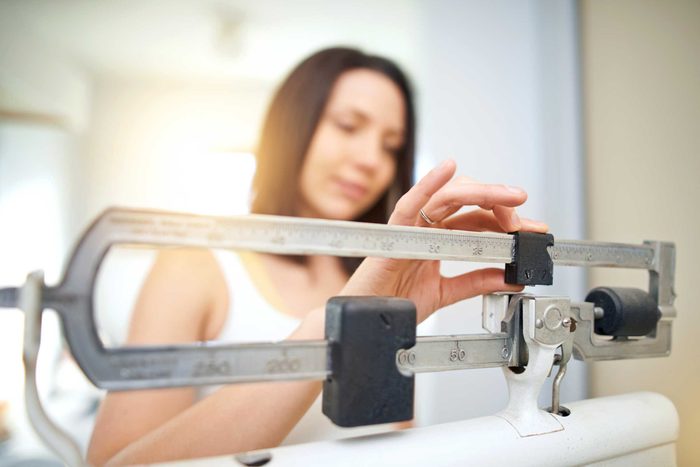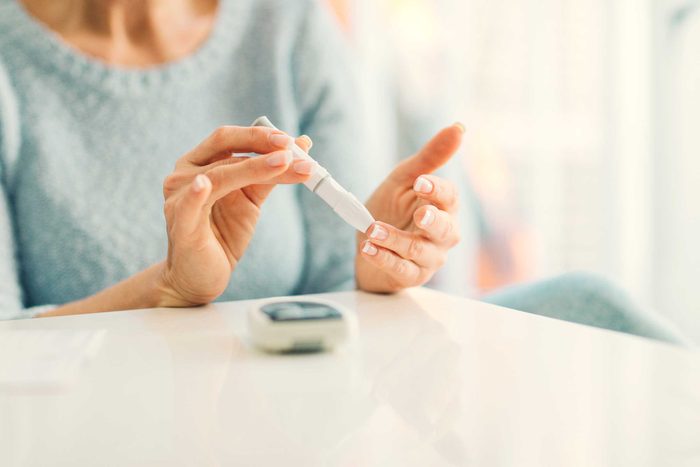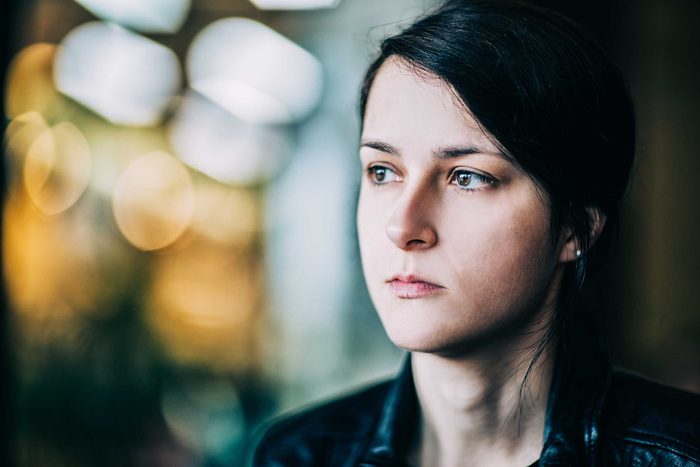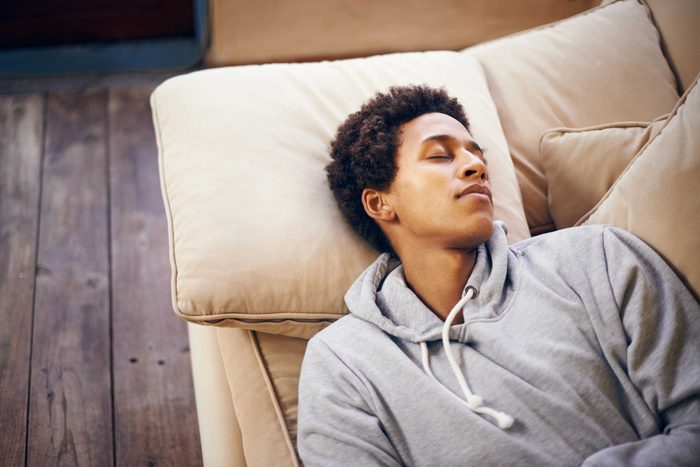Too much sleep may do more harm than good
The benefits of going to bed earlier and even napping show how important sleep is for good health. Although, there are some downsides to catching too many z’s. Here are some things that can happen to your body when you get too much sleep.

You may be at greater risk for heart disease and stroke
The negative health effects of too little sleep are well-documented, but what happens from sleeping too much is less clear. The National Sleep Foundation recommends that the average adult get 7 to 9 hours of sleep. But what if your body craves more sleep: Can you get too much? A growing body of research has linked longer hours of sleep to negative health outcomes, although such studies can’t prove that sleep is the cause of the health problems or is just linked to them. “Oversleeping is not harmful in and of itself, but it is a sign that you may be sleeping ineffectively, or that there is another problem requiring more sleep,” says Carl Bazil, MD, PhD, director of the epilepsy and sleep division of the department of neurology at NewYork-Presbyterian/Columbia University Medical Center, New York. “There are also otherwise normal people who are ‘long sleepers’—they function perfectly well if they get 9 or 10 hours but are sleepy on less. It’s still important, however, to check for other possibilities.” One study in the journal Neurology in 2015 showed a 46 percent greater chance of stroke in long sleepers (defined as sleeping over 8 hours), even after adjusting for other risk factors. (Here’s what happens when you don’t get enough sleep.)

You might not be sleeping well
One theory is that you’re not actually getting good rest, even if you sleep a lot. “Those with untreated sleep apnea [a sleep-disordered breathing issue] have a tendency to oversleep, and we know that undiagnosed and untreated sleep apnea leads to both heart disease and stroke,” says Michael J. Breus, PhD, a California-based clinical psychologist known as The Sleep Doctor. He says that other problems like stomach upset or hot flashes could also be the cause of poor sleep, or your environment might not be dark or quiet enough. Even teeth grinding can affect your sleep. If you feel that you’re still sleepy despite being in bed for a long time, talk to your doctor to tease out the cause. These are the signs of sleep apnea you need to know.

You’re more likely to be obese
Weight gain is another chicken-or-egg factor associated with long amounts of sleep. Research in Sleep Medicine Reviews in 2018 suggests that long sleep times may be linked with the development of both obesity and type 2 diabetes. “One difficulty in untangling these effects is that things like sleep-disordered breathing, depression, or medication side effects can cause an increase in sleep duration and are also linked to other risk factors, such as weight gain,” says Elizabeth McDevitt, PhD, a postdoctoral researcher at the Princeton Computational Memory Lab at Princeton University, New Jersey. But in this case, sleep could be both a cause and an effect. If you’re spending more time in bed, you’re not exercising or even moving around, so you’re burning fewer calories. (Here’s how you can even lose weight while you sleep.)

You could be at greater risk of type 2 diabetes
Not surprisingly, given the link between longer sleep and obesity, type 2 diabetes is also more common among long sleepers. A study in 2015 published in Diabetes Care found that the risk of type 2 diabetes increased by 14 percent for every hour of sleep above seven hours per night. “Very little is understood about mechanistic pathways linking long sleep and health outcomes,” Dr. McDevitt says. These are 12 sleep disorders you need to know about.

You could start getting headaches
You know that feeling when you sleep in, only to wake up groggy and headachy, almost like you have a hangover? Although that could be caused by poor sleep, it also could be one of the side effects of sleeping too much. “The mechanism behind this isn’t understood that well, and one hypothesis is that fluctuations in neurotransmitters during sleep may be a trigger for headaches,” Dr. McDevitt says. “Another possibility is that when people sleep later in the morning, they may be sleeping past their normal breakfast or coffee time, and the headaches may be related to caffeine withdrawals, low blood sugar, or dehydration.” The best sleep pattern to avoid a “weekend headache,” per the American Headache Society (AHS), is to get a consistent amount of sleep every night, and to go to bed and wake up at the same time each day.

You’re more likely to be depressed
One symptom of depression is oversleeping, so having untreated mental health problems could be one reason why you’re reluctant to get up. A study in the journal Sleep in 2014, which looked at sets of twins, found that long sleep actually activated genes related to depressive symptoms. “One hypothesis is that long sleep duration is associated with decreased physical activity,” Dr. McDevitt says. “Physical activity has been associated with reduced risk of depression by increasing levels of the neurotransmitters dopamine and serotonin, increasing the release of endorphins, distracting from stressful stimuli, and improving self-esteem.” On the other hand, she says people who are depressed may use sleep as an escape or coping mechanism, and stay in bed longer. (Here are 10 medical reasons that could explain why you can’t sleep.)

You may have more pain
A reduction in activity from spending too much time in bed can lead you to be more achy, especially if you have back problems. “It has to do with lying in a position for an extended period of time, [lack of] movement while sleeping, or a bad mattress,” says Dr. Breus. You also might be suffering from poor sleep because of your pain, which again makes you want to sleep longer. But don’t give in, because more activity (under your doctor’s supervision) can help alleviate pain, leading to better quality sleep.

Your brain won’t work as well
Along with headaches, you may experience a “foggy brain” feeling if you get too much sleep. A 2014 study in the Journal of the American Geriatrics Society showed that older women who slept more than nine hours had worse cognition, the equivalent of aging almost two years. Other research showed a connection between long sleep and later dementia, according to the Journal of the Alzheimer’s Association. “Since sleep duration is linked with so many other factors that can also influence cognition, it’s likely that there are both direct and indirect effects of sleep duration on cognition,” Dr. McDevitt says.

You’ll feel jet lagged
Sleeping too much may throw off your circadian rhythms, just as if you’ve been on a long plane trip. Dr. McDevitt says that these rhythms are controlled by our “internal clock,” the part of our brain that responds to light and dark signals. “When light hits the eye, it signals to the internal clock that it is time to be awake, which will then begin a cascade of other processes—control of hormones and body temperature—that play a role in making us feel awake and allow us to function at our best throughout the day,” she says. “Oversleeping and other circadian disruptions, like jet lag or shift work, shift these light cues and put us in conflict with our normal daily rhythm.” So how can you get back on track? Avoid screen time before bed, keep your room cool, quiet, and dark (but still let the morning light shine in), and keep a regular sleep schedule. If you think you might have a medical issue that’s causing long sleep, keep a sleep diary, and discuss the results with your doctor. Here are 19 more things you can do to sleep better tonight.

